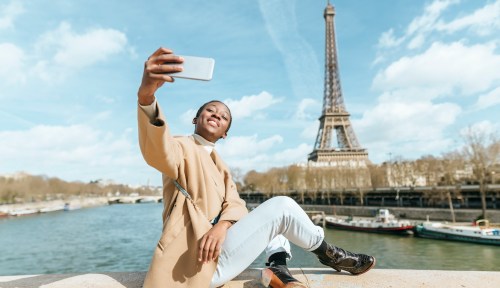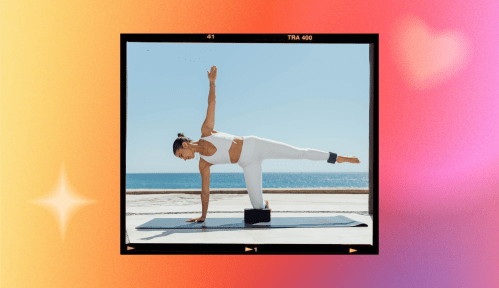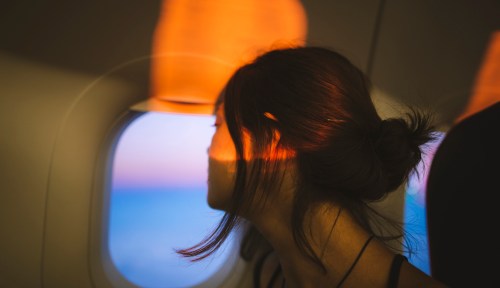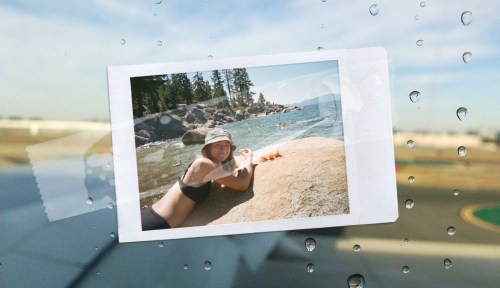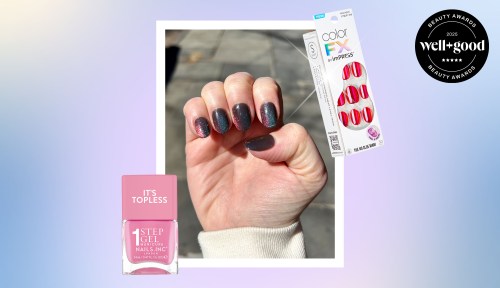After a year’s worth of pandemic-related lockdowns and travel restrictions, many people in the United States are finally enjoying an ease back into pre-COVID normalcy, especially as it pertains to travel. In a survey of 3,000 people, American Express Travel’s Global Trends Report found that 78 percent of respondents want to travel in 2021 to relieve the stresses from 2020. And for a number of people, said getaways are bucket-list trips.
Experts in This Article
author, lecturer, and travel psychologist
According to Merriam-Webster, a “bucket list” is “a list of things that one has not done before but wants to do before dying.” Bucket-list trips often bring to mind features that aren’t the most easily accessible, like being far away, luxurious, time-consuming, and expensive. But in the case of post-quarantine travel, a “bucket list” vacation doesn’t have to mean jetting off to Africa for a safari or jumping out of an airplane over Dubai’s Palm Island. Instead, it’s about having an experience that truly means something to you. And that meaning doesn’t have to come at the cost of all your vacation days or life savings.
This shift comes as a direct effect of the loneliness and isolation that many endured while quarantining amid the pandemic. “What people want from travel now is what they’ve been deprived of—spending meaningful time with their family and friends,” Brian Chesky, Airbnb co-founder and CEO said in a statement presenting the company’s 2021 travel report, which predicts 2021 to be the year of “meaningful travel.” “Travel will be viewed as an antidote to isolation and disconnection,” he added.
And while it makes sense that after nearly a year and a half at home, people are looking to hop on a plane to anywhere, according to pros, the desire to take meaningful, life-affirming bucket-list trips runs far deeper than simple cabin fever.
Why people are yearning for once-in-a-lifetime experiences
According to Michael Brein, PhD, who’s known as “The Travel Psychologist” because of his expertise in the psychology of travel, people are re-evaluating their general post-lockdown priorities—and checking items off their bucket lists—particularly as it relates to travel—has top billing. As of March, 2021, one in five Americans had lost a relative or close friend to COVID-19, and he notes that even those who didn’t lose a loved one were faced with the notion of their own mortality as they watched death rates tick up around the world. “We’ve been forced to take a harder look at what’s important and make some kind of decision about what’s most important to us, because we’re not sure what the outcome is going to be,” he says.
“We’ve been forced to take a harder look at what’s important and make some kind of decision about what’s most important to us, because we’re not sure what the outcome is going to be.” —Michael Brein, PhD
Dr. Brein says the collective grief we’ve been experiencing throughout the pandemic has inspired many to “go for the thing that has the most meaning,” which has in turn catalyzed many to stop simply talking about the trip they’ve always wanted to take and actually book it.
“COVID made me realize that happiness is the ultimate goal…which is why we’re going on this trip,” says Bonnie Azoulay, a freelance writer who just returned from a road trip up the California coast with her husband. For her, the vacation was an opportunity to “get out and experience the world,” which in this case, didn’t require a passport.
While vacation-planning app TripIt lists Italy, Greece, Spain, France, and Scotland as its most sought-after destinations for Americans looking to take a bucket-list vacation, Dr. Brein expects that we’ll see people visiting a number of different destinations around the world in entirely new ways in the months and years ahead. “Those of us who have had the travel bug or experienced wanderlust will have that even more, but I think we’re going to become more involved qualitatively in how we want to satisfy that wanderlust,” says Dr. Brein. For example, “a lot of people will be looking for trips that are more personally meaningful for them. They’re going to decide they’re not going to go to Paris and stand outside of the Louvre in a long line just to go in and see the Mona Lisa, but instead they’ll take a deeper look into the kind of transformational experiences they want to have.”
The latter type of bucket-list trips have the added benefit of being good for your mental health, which is something we could all use a little bit more of after the hellscape that was 2020. According to Jennifer Tanner, PhD, a developmental psychologist at the Institute for Health at Rutgers University, when you experience trauma or stressful situations—the way so many Americans have since the onset of the pandemic—your brain turns on its defense mechanisms and pushes whatever you can’t handle into your subconscious. And when you step away from your daily life an into a new adventure, like, say, by paragliding off of the cliffs in Peru or taking a weekend road trip to a national park, you turn on an entirely new set of senses that gives your brain a chance to adapt and become more resilient.
This phenomenon was hugely helpful to Nicole Caruvana, a health-care worker who spent most of the pandemic feeling burnt out, and traveled to Cape Town and Botswana to go on safari after receiving her vaccination. “The trip was part stress relief, part finding myself again,” she says, reflecting on the bucket-list experience of sitting two feet away from a pride of lions. “I’m so much my best self when I am immersed in a new experience and learning new things—it helps me refocus and practice gratitude.”
Post-pandemic bucket-list trips are more about the journey than the destination
“I think people are doing these once-in-a-lifetime trips because they’ve been stuck inside for the past year, and the value of friends and connection have become more important than ever,” says Erina Pindar, the managing director of SmartFlyer, a travel company that specializes in planning luxury experiential travel. “People are more willing to spend their money on experiences that matter with the people that they love,” she says, adding that she’s seen an increased interest in these types of trips in the aftermath of the pandemic.
Mimi Levine, a publicist based in New York City, is gearing up for exactly this type of connection-driven adventure. She spent much of quarantine watching Stanley Tucci eat his way through Italy on Stanley Tucci: Searching for Italy. Then, directly inspired by his delicious-looking travels, she booked a trip to Sicily with two of her best friends after she got her COVID-19 vaccine. “I wouldn’t consider this trip a ‘bucket list’ destination [for me]—I’ve been to Italy before—but I would certainly consider it a bucket-list trip,” says Levine, who’s planning to take cooking classes and scuba dive in the Ionian Sea during her time on the Italian coast August. “[My friends and I] are itching for travel and adventure, and it’s awarding three very eager best friends the opportunity to connect and travel together after so long apart.”
Pindar says many of the post-lockdown vacations she’s been planning lately for clients have been multi-generational trips for families who are finally able to get together after a year apart, adventures for groups of best friends who have maxed out on Zoom happy hours or month-long getaways for couples looking to reconnect in a new place after braving a year at home with their kids. “People are coming together because they’re more aware of the loss, and so it’s become even more important [to spend time with the people you care about],” says Dr. Brein. “It’s true in so many aspects of our lives, including travel.”
Ultimately, the “why” matters far more than the “where”—which means that any trip that’s meaningful to you deserves a check mark on your proverbial bucket list.
Oh hi! You look like someone who loves free workouts, discounts for cult-fave wellness brands, and exclusive Well+Good content. Sign up for Well+, our online community of wellness insiders, and unlock your rewards instantly.
Sign Up for Our Daily Newsletter
Get all the latest in wellness, trends, food, fitness, beauty, and more delivered right to your inbox.
Got it, you've been added to our email list.
